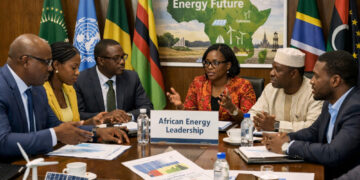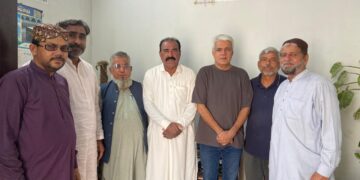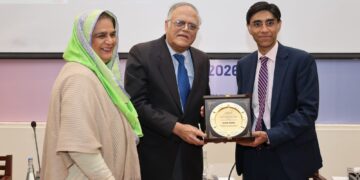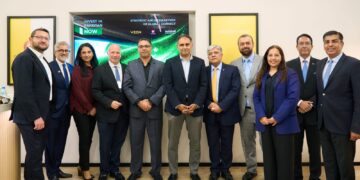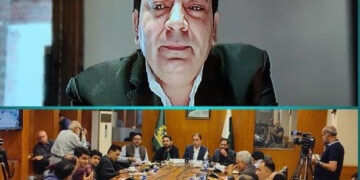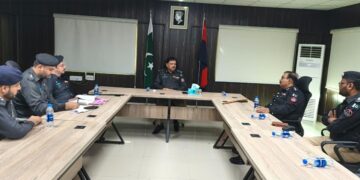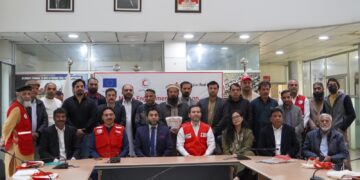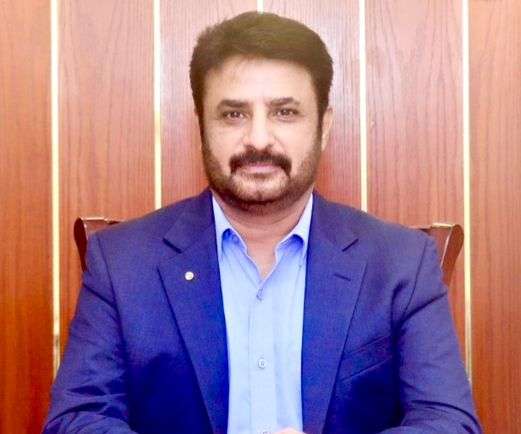U.S. Embassy, Islamabad, AMBASSADOR BLOME: Good evening. I would like to warmly welcome all of you to this celebration of the 248th anniversary of the United States’ independence. I am especially pleased to welcome our Chief Guest, Mr. Ahsan Iqbal Minister of Planning, Development and Special Initiatives for being here today.


Ladies and Gentlemen, one of the characteristics of the moment we are passing through is global re-ordering, where entities and organizations that had not reached their potential are emerging to stake their rightful claim, and demand their place on the world stage. And I think you guessed, I am talking about cricket. I won’t dwell on what I saw in Dallas, but I am a true convert to the excitement of the T20 game!
And I will tell you this — I travel a lot in Pakistan, through the length and breadth of this beautiful country. And when I see every patch of open ground on a weekend crowded with cricket bats and wickets, I know Pakistan will always be well represented in those big moments.


Today, we gather to celebrate the Fourth of July. I know today is July 2nd, but what not everybody knows is that the Continental Congress actually voted for independence on July 2nd, and the text of the Declaration of Independence adopted two days later on July 4. So, we have an argument for having it today. What they voted for over those two days, what the Declaration called the “truths” that all men are created equal, and that they are endowed with certain “unalienable rights,” are what we celebrate as our national ideals. The 248 years that have followed have been the story of our struggle to realize them in full.
Pakistan is a country that, like the United States, emerged from its own hard-won struggle for independence, and like the United States, is still writing its own story. And one characteristic that our countries share is an obsession among our thinkers and leaders with discussing the very purpose of our societies and politics. This idealism is healthy and it provides the basis for renewal and growth.
And it also provides a basis for shared understanding and partnership. It has become commonplace to observe that the United States and Pakistan have sometimes struggled to understand each other. But that observation can obscure the long history of partnership and cooperation between our two countries. In Urdu you say: “Humaray safer ka her eik qadam ahmiet rakhta hay,” “each step of the journey is important.”
While at times we have had to tackle great challenges – such as floods, war, a pandemic and economic setbacks – those of us who have worked together to strengthen this relationship have always recognized that the partnership is, and has always been, part of a longer journey toward increased prosperity and security for our two nations, and that each step on this journey is important.
American businesses have played a leading role in Pakistan since independence, and not as foreign entities implanted on Pakistani soil. U.S. firms overwhelmingly employ Pakistanis from top to bottom, training them to the highest technical and management levels, and these employees go on in turn to found and run their own global firms. They bring American values of openness, transparency, and community citizenship to the private sector here and they provide hundreds of thousands of jobs, and critical research and development assets.
Or consider U.S. assistance. You can start with infrastructure: Mangla, Tarbela, Gomal Zam, Satpara, and Golen Gol. These dams provide clean, affordable energy to millions of homes, prevent water shortages, and mitigate the damaging effects of flooding. Today we are upgrading Mangla and Tarbela with new GE turbines. The originals lasted for 50 years, and the new versions will last another 50 years – a 100 year investment in Pakistan funded directly, not through loans. That’s what we mean by commitment.
At the same time, Pakistanis are benefiting tremendously from our trade relationship, supplying billions of dollars worth of exports to the U.S. market annually. The U.S. is proud to be Pakistan’s largest export market globally.
We are also proud of the U.S.-Pakistan “Green Alliance,” a transformative initiative committed to support Pakistan as it strengthens climate resilience, pursues energy transformation, and fosters inclusive growth.
We have contributed $1 billion to the Green Climate Fund and have unlocked millions of these dollars in climate mitigation and adaptation projects to enhance Pakistan’s resilience to climate change. This summer, we will launch a new climate-smart agriculture program to help farming families adapt to the climate challenge and prepare the agriculture sector for a new era of sustainability.
And the United States is a steadfast supporter of Pakistan’s healthcare system. In May 2024, the U.S. and Sindh government launched a groundbreaking initiative with an investment of $9 million, aimed at addressing tuberculosis. The U.S. provides more than $85 million in funding to address malnutrition in Pakistan, including $12 million to treat acutely malnourished children. In education, our programs have constructed hundreds of new schools and rehabilitated thousands more.
The U.S. Mission proudly sends more than 500 Pakistanis to the United States each year on educational, professional, and cultural exchanges. We also support the exchange of U.S. and Pakistani artists, musicians, and experts on topics such as climate change and entrepreneurship.
The United States has continued our commitment to the preservation of Pakistan’s rich cultural heritage, supporting 35 cultural preservation projects over the past 20 years. Through the Ambassadors Fund for Cultural Preservation and other grants, the United States has supported the conservation of Gandhara archaeological treasures, Mughal architectural heritage such as the Wazir Khan Mosque, the restoration of Sufi shrines and Hindu monuments such as Hazrat Shah Shams Tabraiz and Varun Dev, and supported the preservation of Buddhist monasteries such as Takht-i-Bahi.
In sum, I want to stress the strength and durability of the U.S.-Pakistan partnership and as we celebrate Independence Day, we also celebrate the steps we have taken together.
As I said earlier, “Humaray safer ka her eik qadam ahimiet rakhta hay,” “each step of the journey is important.”
Thank you all for joining us this evening. Shukria, and please help us celebrate a happy Independence Day!







